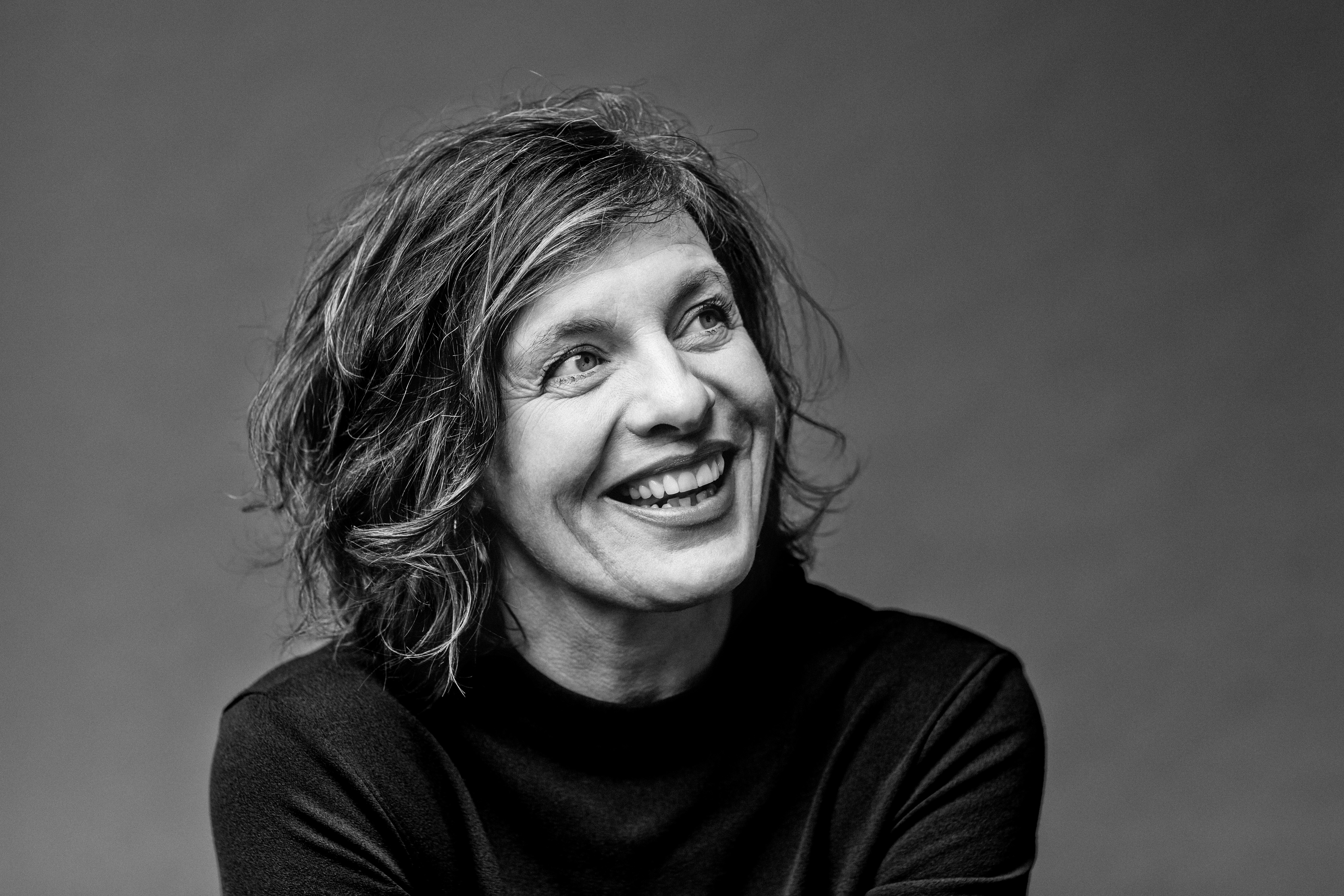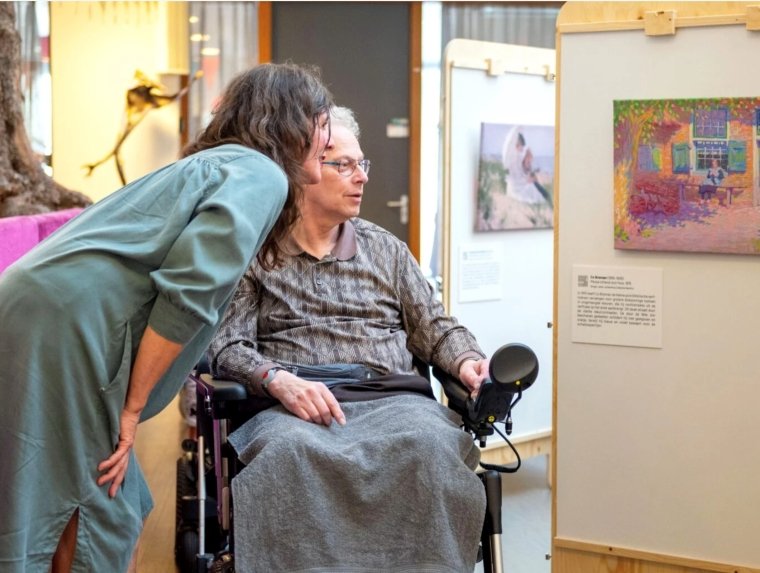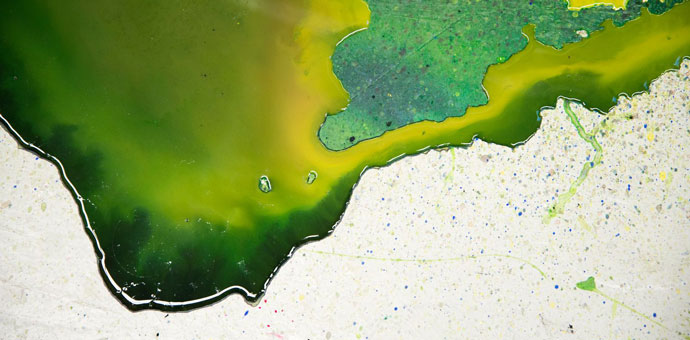For 15 years, Marcelle has earned her income exclusively from the cultural sector. Although she attended and completed dance school, and started performing and teaching dance afterwards, she never wanted to limit herself to a specific art form. “For me, not everything has to be done within the framework of one artistic discipline. When I work with dance, I am also working with photography, sculpture, decor and installation; put briefly, it’s always multi-disciplinary. I like to start with a question or cause as the foundation, and that informs my artistic process. Only later do I decide which discipline, or combination of disciplines, is best to express that.”
More than just a colouring book
Nowadays, Marcelle works one day a week at the Windesheim University of Applied Sciences, where she is an artistic researcher in the Mental Health and Society lectureship. At Windesheim, she is setting up an art-based research studio. In addition, together with Lobke Meekes, she runs IDKR8, an organisation that helps schools and cultural institutions strengthen artistic and cultural education. She is also involved in Club Goud projects in Nijmegen, a “concept that focuses on the elderly,” she explains. “In 2017, Club Goud started some wonderful projects in Nijmegen that highlight the importance of arts and culture to the elderly. Among other things, I develop artistic materials that aim to bring depth to the lives of the elderly.”
That goes beyond just a colouring book, she emphasises. “It can be very moving to see what happens when my participants are engaged in an assignment. There is sometimes still the idea that a person stops participating in society after turning 75, but these people are bursting with life and life experience.”
Lifelong learning
Gradually, Marcelle discovered that she is a researcher as well as an artist and art educator. Naturally, therefore, the Master Arts Education felt like a nice stepping stone for her to focus more on conducting artistic research. “I wanted to consider the added value of art and keep developing myself further,” she explains about her decision to return to school. “I was toying with the idea for years, but you know how it is: too busy, no time, etc. When COVID came knocking, I finally found the right moment to take the plunge. One of my colleagues had graduated from the same master course the previous year, and she gave me the final push to go for it.”
Marcelle has heartily enjoyed the course. “I was in a class where the youngest student was 25 years old and the oldest was around 60. It was such an inspiration to be surrounded by such diverse viewpoints and backgrounds. I saw my time in the course more as a learning opportunity and a workshop than a school.”
You gain a different sort of knowledge with art. You develop a new way of thinking and viewing the world, and through that, you discover what an excellent research method art can be.”

During her master course, Marcelle learned that artistic research in particular can complement traditional [scientific] research quite well. “With art, you gain a different sort of knowledge. You develop a new way of thinking and viewing the world, and through that, you discover what an excellent research method art can be. That insight now informs a lot of my work at Windesheim.” Marcelle is also grateful for the amount of space for her own input that she was given at the master's. She enjoyed her time at ArtEZ and it confirmed for her that learning never comes to a full stop. “It was nice to be reminded of that again.”
Collaborating with science
When asked if she is happy with where she is now, Marcelle nods. “I’m very satisfied. I’m making fewer and fewer concessions and working more with what’s truly important to me: finding stories and creating new ones. Even if those stories are vulnerable or uncomfortable. As a newly graduated art student, you tend to say yes to everything, which I did in the beginning. But you should also be hesitant to do that. It’s better to find out where your boundaries are first. At IDKR8, for instance, we are mostly involved in long-term projects where we have a decent amount of say. We don’t do short-term workshops, even the ones we know will make money.”
Marcelle herself has always had lofty ambitions to build her career in the artistic sector. “It’s a dream come true that I’ve succeeded at doing that.” As to whether she still has ambitions in the field, Marcelle says she would still like to be involved in the traditional way of doing research at some point. “As in, spending time with a scientist and learning from one another. But honestly, I am more than happy with how my life looks now.”
Follow Marcelle


